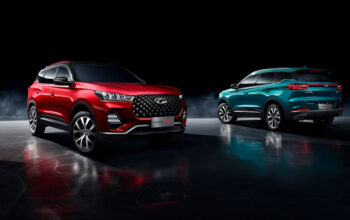Sustainability has become a paramount concern across industries, including the automotive sector. As the world grapples with environmental challenges, the role of sustainability in the automotive industry has garnered significant attention. In this context, the contribution of Hyundai wreckers to sustainability stands out as a crucial aspect of the automotive ecosystem. Hyundai wreckers Dandenong play a pivotal role in salvaging and recycling vehicles, thereby promoting environmental responsibility and resource efficiency.
Hyundai Wreckers: An Overview
Hyundai wreckers, also known as auto dismantlers or scrapyards, specialize in the disassembly and recycling of end-of-life vehicles. These facilities serve as vital hubs for salvaging usable components from vehicles that are no longer operational or roadworthy. The primary function of Hyundai wreckers is to dismantle vehicles, identify and extract reusable parts, and process the remaining materials for recycling. Through this process, Hyundai wreckers effectively extend the lifecycle of automotive components and reduce the environmental impact of end-of-life vehicles.
The process of salvaging and recycling vehicles at Hyundai wrecking yards involves meticulous disassembly and categorization of parts. Salvaged components such as engines, transmissions, body panels, and electrical systems are carefully extracted, inspected, and refurbished for potential reuse. Meanwhile, materials such as steel, aluminum, and copper are processed for recycling, thereby conserving valuable resources and minimizing waste.
Environmental Benefits
The utilization of Hyundai wreckers brings forth a multitude of environmental benefits, aligning with the principles of sustainability. By salvaging and reusing components from end-of-life vehicles, Hyundai wreckers Dandenong play a pivotal role in reducing the carbon footprint associated with automotive manufacturing. The recycling of materials such as metals and plastics from salvaged vehicles significantly mitigates the need for virgin production, thereby conserving energy and reducing greenhouse gas emissions.
Furthermore, the practice of salvaging and reusing parts through Hyundai wreckers contributes to the circular economy model. This model emphasizes the reuse and repurposing of materials, thereby minimizing landfill waste and promoting resource efficiency. Through the repurposing of salvaged parts, Hyundai wreckers significantly reduce the burden on landfills and contribute to the sustainable management of end-of-life vehicles, ensuring that valuable resources are not squandered.
Economic Impact
In addition to their environmental contributions, Hyundai wreckers offer compelling economic advantages for consumers and businesses alike. The availability of high-quality, pre-owned components from salvaged Hyundai vehicles presents cost-effective solutions for vehicle repairs and maintenance. By opting for recycled parts from Hyundai wreckers, consumers can benefit from substantial cost savings without compromising on quality or performance.

Moreover, the use of recycled components from Hyundai wreckers holds significant potential for businesses engaged in fleet management or automotive repairs. Through the utilization of salvaged parts, businesses can effectively reduce operational costs and enhance their bottom line, all while demonstrating a commitment to sustainable practices. The economic viability of utilizing recycled parts from Hyundai wreckers underscores the dual benefits of cost savings and environmental responsibility.
Community Engagement
Hyundai wreckers play a pivotal role in fostering community engagement through sustainable practices and job creation. By supporting local Hyundai wreckers, individuals and businesses contribute to the establishment of sustainable automotive ecosystems within their communities. These facilities not only provide essential services for salvaging and recycling vehicles but also create employment opportunities, thereby bolstering local economies and fostering a sense of environmental stewardship.
Furthermore, the engagement with Hyundai wreckers presents an opportunity for individuals and businesses to actively participate in the sustainability agenda. By patronizing Hyundai wreckers and utilizing recycled components, consumers and businesses demonstrate their commitment to reducing environmental impact and promoting resource conservation. Through community engagement and sustainable practices, Hyundai wreckers serve as catalysts for driving positive environmental change at the grassroots level.
Future Outlook
Looking ahead, the Hyundai wrecking industry is poised to witness further advancements and innovations that will bolster sustainability efforts. Emerging trends such as the integration of advanced recycling technologies and the adoption of eco-friendly dismantling processes are set to enhance the environmental performance of Hyundai wreckers. Additionally, the focus on expanding the range of salvaged components and the utilization of renewable energy sources within wrecking facilities underscores the industry’s commitment to sustainable practices.
As the automotive industry continues to evolve, it is imperative for individuals and businesses to consider the environmental and economic advantages of supporting Hyundai wreckers. By embracing sustainable options for automotive repairs and maintenance, consumers and businesses can actively contribute to the preservation of natural resources and the reduction of environmental impact. The future outlook for Hyundai wreckers is aligned with a steadfast commitment to sustainability, presenting an opportunity for all stakeholders to participate in driving positive change.
Conclusion
The role of Hyundai wreckers in contributing to sustainability is undeniable, with far-reaching environmental, economic, and community implications. Through the salvaging and recycling of vehicles, Hyundai wreckers Dandenong effectively minimize environmental impact, reduce carbon footprint, and promote resource conservation. Furthermore, the economic benefits and community engagement fostered by Hyundai wreckers underscore their significance in driving sustainable practices within the automotive industry.








